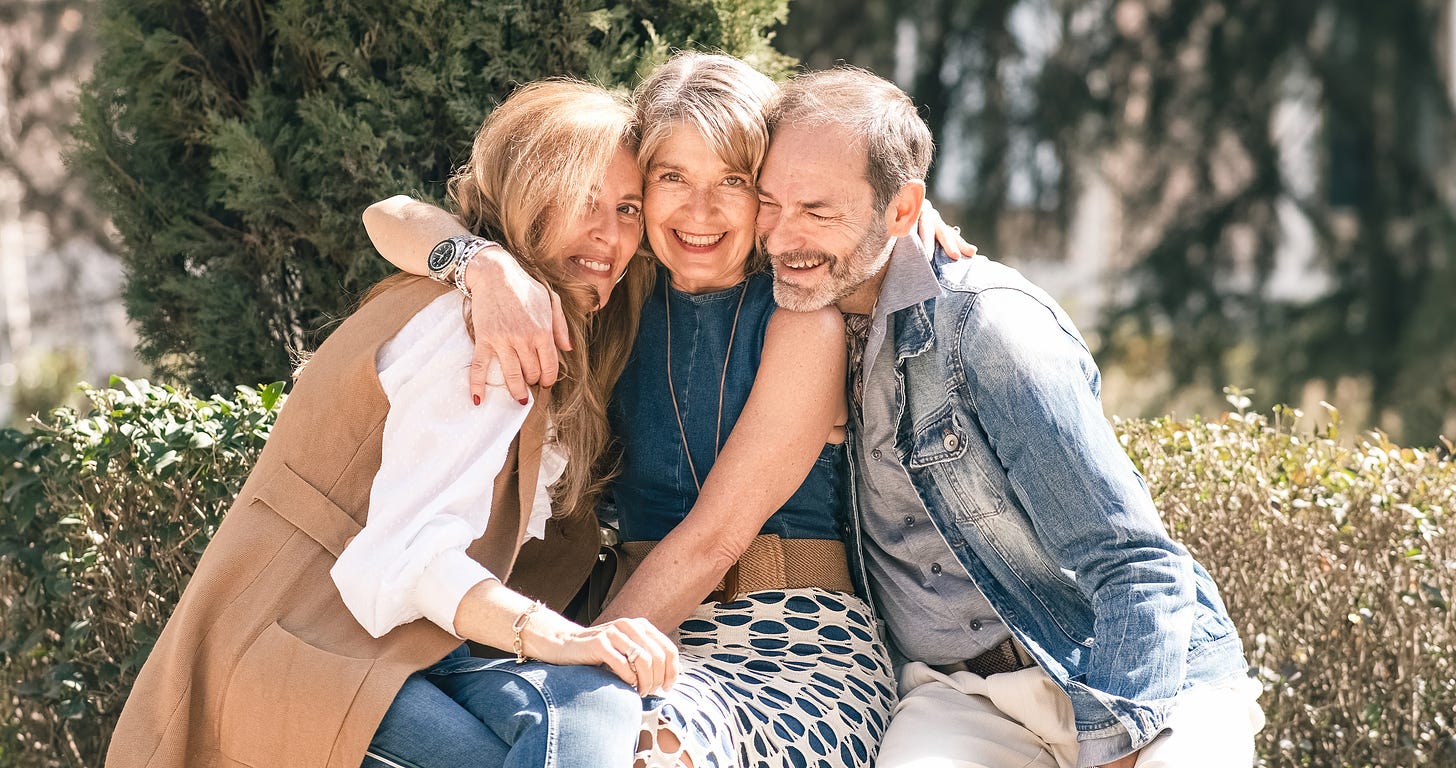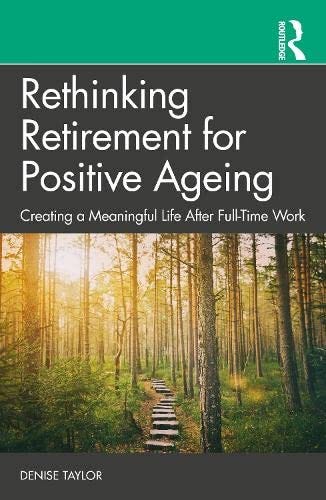Welcome to new subscribers, and readers. I write around retirement, later life, nature, wisdom and include relevant research. If you find this article interesting, I would love you to become a subscriber. Everything I write is free to read, but it is so satisfying to know people choose to allow my writing to come to their inbox. Thanks in advance for subscribing.
Reaching 60 you can think that you are too old … or you can do something that makes you stand out. You train for a marathon, sail around the world, start a business that becomes widely successful or return to study.
I’d considered a PhD over 20 years ago, wanting to achieve it before reaching 50, but I was never sure what to research. So many vague ideas and I never focused down. I continued to ponder over coming years but was still unsure.
Ageing Well as a research idea
In my mid-late 50s I got some clarity. I liked the idea of researching ageing well, and perhaps to do a masters in Gerontology. Having spoken to a Professor from Swansea University, he felt that as I already had 2 masters degrees (MSc in occupational psychology and MBA) it wouldn’t give me the depth and encouraged me to opt for a PhD or a professional doctorate.
After filling in a detailed application, I was shortlisted for an interview within the Occupational Psychology department of London University. I had submitted a research idea around the transition from work to retirement and was interested in unretirement, looking into why people go back to work after retirement. After spending time on a Vision Quest my focus was clear – how do people find meaning in life after full-time work. When we no longer have work, who are we? And how does psychology help us to age well.
The research/study process
The beauty of study in later life is that the focus is on going deeper, not doing the minimum that was my approach in the past. I was also researching an area highly relevant to me and people around my age. Actually, it is relevant to everyone as we are all going to age.
I was undertaking research through the pandemic, and whilst I had more time (as all client work ceased) there was a real sense of worry that affected my thinking. I was part of a 7-person cohort, we met weekly on Zoom and this helped keep us all motivated alongside a chance to share our concerns. As I moved into the interview stage these were all done on Zoom.
Research, writing, revisions, submission, viva, award ceremony … and then to share my research. I’d planned to get published in a top tier journal. I then found out you had to pay to be published as so many journals are open access. If you work at a University, they cover the fees, but £3000!!!
So sought out a book deal instead. I’ve always been approached to write books – this time I sent off my proposal and got rejected from Trotman, Harriman House, Icon, all of whom had published my books in the past. Then Routledge said yes.
Rethinking Retirement for Positive Ageing
This is from the intro to my book
This is not your parents’ retirement. No longer is retirement seen as the passage to old age where we can put our feet up and live a life of leisure. On its way out is the four-stage model of childhood, education, work and family, and retirement. Instead, we can move between stages and return to learning, set up a side hustle, or engage in so many options beyond a conventional retirement.
Until the early part of the 20th Century there was no retirement - once you could no longer work you were (hopefully) looked after by family. Retirement was introduced around 1930 to make space for younger workers by providing some financial support for persons leaving the workforce. With relatively low life expectancy rates, when retirement benefits were first introduced most people never lived to fully claim them. With hard physical work people were ready to take things easy. The 1970s to 1990s was the golden era of retirement with many company pension funds awash with money, people living longer than in the 1930s and many retiring with a substantial pension and money available to spend on pleasurable activity.
The world is changing and what we thought of as retirement is in flux. There has been a shift from a traditional retirement with a focus on leisure to many different forms of retirement.
Will a typical retirement still suit, or given we still feel fit and healthy, and extra money would be useful, should we carry on working and put traditional ideas of retirement to one side for now?
With many people now living to 90 and beyond we want more. I’ve written this book for you if you see the decades ahead full of adventure and growth, so let me help guide you in how to have a fulfilling life after full time work.
I also recognise that some people may feel a bit uncertain about the decades ahead, and so this book will suggest the range of possibilities available to you.
You could be in your 50s and planning ahead or in your 60s and looking forward to this next stage of life. Or perhaps you have already retired and realise you are drifting.
Whilst the money side is important - will I have enough? Where should I invest? should I opt for an annuity or drawdown as required from my pension pot? the non-financial aspects are equally important.
We need to have the psychological resources to move to a later life of meaning where we can remain active and engaged, with curiosity. I want to help you to take stock of your life and look at your options for the future.
If we look at a dictionary definition of retirement it talks about withdrawal; in battle withdrawal is to fall back or retreat but we don’t want to withdraw, we want to move forward! So perhaps revivement could be a replacement word. When we revive something, we activate, set in motion, renew. We restore things to life.
Many people have been sleep-walking through their 50s, on auto-pilot, not fully satisfied but not knowing what else there is. So now is the time when we can review – our interests, our relationships, our passions, all those things that make us the person we are.
I’ll be sharing some of the book over coming weeks/months. I’ll go beyond the book too - I’m very interested in wisdom and elderhood, that will be the focus of my next book.







Thanks, Denise - this resonates with me as I retired in Dec 2022 and many of these thoughts were a part of making my decision. Also, around that time Serena Williams retired from tennis, but stated that she preferred the word, "evolving." I have used, "evolving," as the inspiration for my retirement and so far it's working well for me. I look forward to your future posts on this topic!
Hi Denise, I really enjoyed this and hearing more about your background! Before your post, I had never once thought about when or why "retirement" came about. It's shocking that no one retired before the 1930's, and that it was basically invented to make room for a younger workforce. While I may stop working to earn an income at some point down the road, I don't see myself giving up work so long as I have something I'm passionate about or interested in. I'm here for the revivement!